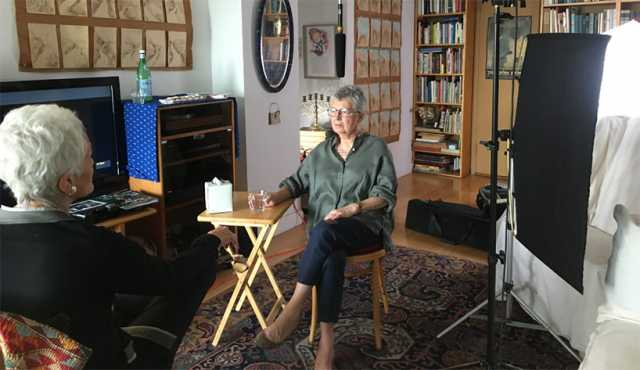
BALTIMORE & LOS ANGELES—Sinclair Broadcast Group has announced a multi-year, national agreement with USC Shoah Foundation-The Institute for Visual History and Education to assist with the recording of interviews with genocide survivors as part of the Institute’s Last Chance Testimony Collection Initiative.
The effort is a race-against-time effort to collect testimonies from the last living survivors and witnesses to the Holocaust and other genocides, the foundation said. Under the agreement, Sinclair will provide its production facilities to film testimonies via high-definition video and audio recordings taken with state-of-the-art equipment at its broadcast television stations around the U.S.
Sinclair’s WPEC CBS 12 in West Palm Beach, Florida was the first market to begin providing production space, equipment, and staff to assist the Institute in recording new testimonies. Beginning in April, the recording of testimonies will expand to WJLA in Washington DC and WBFF in Baltimore, with additional Sinclair news markets throughout the country planned, Sinclair said.
“It is an honor to assist USC Shoah Foundation with the recording of survivor’s interviews, ensuring the memorialization and preservation of these important, powerful stories. Through the education provided by the foundation, we hope to move one step closer to eradicating intolerance and discrimination in all forms.” said Chris Ripley, president and CEO, Sinclair.
USC Shoah Foundation is working with local Jewish federations to identify Holocaust survivors.
USC Shoah Foundation first began collecting testimonies almost 30 years ago to give voice to Holocaust survivors and use their testimonies to educate present and future generations.
Over the next five years the Institute recorded and indexed more that 50,000 interviews in which Holocaust survivors chronicled their lives before, during and after the Holocaust. More than 52,000 Holocaust survivor and witness testimonies are now saved and shared through the Institute’s Visual History Archive, which is currently available to users at 185 access points in 15 countries and forms the basis of educational activities that reach some 10 million learners annually.
The Last Chance Testimony Collection Initiative was launched in 2019 to encourage Holocaust survivors-most of whom are now in their eighties and nineties-to give testimony while time and memory permit.
Beginning in 2009, the Visual History Archive began adding testimonies from other mass atrocities including the Armenian Genocide, the 1994 Genocide Against the Tutsi in Rwanda, and the War and Genocide in Bosnia and Herzegovina. The total archive now contains more than 56,000 testimonies.
There is no cost to survivors or their families for recording these interviews, the foundation said.
Dr. Robert J. Williams, Finci-Viterbi executive director of USC Shoah Foundation, said the Last Chance Testimony Collection Initiative is rooted in the belief that as long as there are still witnesses ready to speak, their voices must be heard.
“Every Holocaust survivor who shares his or her experience adds to our knowledge and provides an enduring legacy of memory,” Dr. Williams said. “With antisemitism once again on the rise around the world, it is our duty to collect and listen to the testimonies of those who experienced the worst consequences of unchecked bigotry against Jews.”
USC Shoah Foundation is also seeking descendants of survivors and Holocaust scholars to volunteer as interviewers to guide survivors through the testimony collection process.
To request to be interviewed, to volunteer as an interviewer, or for more information, go to sfi.usc.edu/last-chance.







